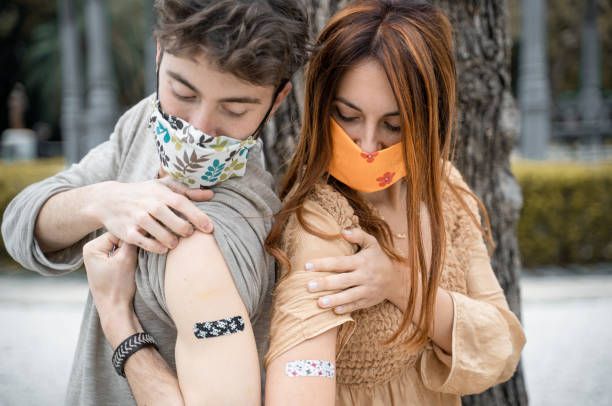Understanding Ringworm Symptoms, Treatment and Prevention
Ringworm is a highly contagious fungal infection that affects the skin, scalp, and nails. Despite its misleading name, ringworm is not caused by a worm but by dermatophytes, a type of fungus that thrives on the outer layer of the skin. The infection manifests as an itchy, red, circular rash with a clearer center, giving it a ring-like appearance.
While
ringworm is usually not serious, it can be uncomfortable and persistent if left untreated. This blog will explore the symptoms, causes, treatment options, and when to seek medical care for ringworm.
Table of Contents
What Is Ringworm?

Ringworm, or tinea, is a fungal infection that can appear on different areas of the body, with specific names depending on its location:
- Tinea corporis: Ringworm on the body, typically appearing as circular, red patches
- Tinea capitis: Ringworm on the scalp, often causing hair loss and scaling
- Tinea pedis: Athlete’s foot, a form of ringworm that affects the feet
- Tinea cruris: Jock itch, occurring in the groin and inner thigh areas
- Tinea unguium (onychomycosis): Fungal infection of the fingernails or toenails, leading to thickened, brittle nails
Ringworm spreads through direct skin-to-skin contact or by touching contaminated surfaces such as shared towels, clothing, gym equipment, or bedding. It can also be transmitted from infected animals, including dogs, cats, and livestock.
Read this next:
Treating Hives: Common Causes and Solutions
Symptoms of Ringworm
Ringworm symptoms vary based on the affected area but commonly include:
- Red, scaly patches or circular rashes that may expand over time
- Severe itching that worsens with heat and sweat
- Blisters, cracked skin, or scaling in advanced cases
- Hair loss and inflammation if present on the scalp
- Thickened, discolored, or crumbling nails when the infection spreads to fingernails or toenails
Since ringworm can mimic other skin conditions like eczema or psoriasis, proper diagnosis is essential to ensure effective treatment.
How to Treat Ringworm
The treatment for ringworm depends on its severity and location. Below are common approaches:

1. Over-the-Counter Antifungal Medications
For mild cases, antifungal creams, lotions, or powders containing clotrimazole, terbinafine, or miconazole are highly effective. These should be applied consistently for two to four weeks, even if symptoms improve earlier, to ensure the infection is fully eradicated.
2. Prescription Medications
For persistent or widespread infections, particularly those affecting the scalp or nails, a doctor may prescribe oral antifungal medications such as fluconazole, itraconazole, or griseofulvin. These treatments are typically required for several weeks or even months, as nail and scalp infections can be more challenging to treat.
3. Maintaining Proper Hygiene
Fungi thrive in warm, moist environments, making hygiene an essential part of treatment and prevention:
- Keep the affected area clean and dry
- Change clothes, socks, and underwear daily
- Avoid sharing personal items like towels, hairbrushes, and hats
- Wash and disinfect gym equipment and household surfaces regularly
4. Home Remedies for Ringworm
While not a substitute for medical treatment, some natural remedies may offer mild antifungal properties:
- Tea tree oil: Has antifungal properties and can be applied to the affected area (diluted with a carrier oil)
- Apple cider vinegar: Some people use it as a topical application due to its acidic nature
- Aloe vera: Known for its soothing and antimicrobial benefits
However, these should only be used alongside proven antifungal treatments rather than as primary solutions.
Preventing Ringworm
To reduce the risk of contracting or spreading ringworm, follow these preventive measures:
- Wash hands regularly with soap and warm water
- Shower after sports or workouts to remove sweat and bacteria
- Wear loose, breathable clothing and moisture-wicking socks
- Avoid walking barefoot in public showers, locker rooms, and swimming areas
- Treat pets promptly if they show signs of fungal infections, such as hair loss or skin irritation
When to See a Doctor
Although many cases of ringworm can be treated at home, medical attention is necessary if:
- The infection spreads rapidly or does not improve with treatment
- You experience pain, swelling, or pus, which could indicate a secondary bacterial infection
- Ringworm appears on the scalp or nails, as these require prescription medication
- You have a weakened immune system, which increases the risk of complications
Helpful blog:
Finding Immediate Medical Help: Your Ultimate Guide to Locating the Best Urgent Care Near You
Visit UrgiClinic Urgent Care for Ringworm Treatment
If you suspect you have ringworm and need treatment, UrgiClinic Urgent Care is here to help. Our medical team can diagnose your condition and provide personalized treatment options to help you recover quickly and prevent recurrence.
Walk in today for fast, effective care and relief from ringworm symptoms.. Your skin health matters to us!













